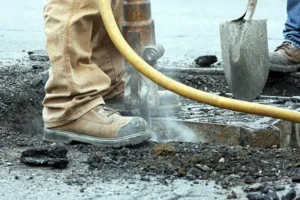The travel industry, a multi-billion dollar global enterprise, thrives on the allure of affordable vacations and exotic experiences. However, this insatiable demand for cheap labour often comes at a devastating cost: human trafficking.
The International Labor Organization (ILO) states that forced labour now generates a staggering US$236 billion in illegal profits each year. This represents a 37% increase since 2014, fuelled by more people forced into labour and increased profits from exploitation. The dramatic surge highlights the growing scale of forced labour and its devastating impact on victims.
As travel companies seek to cut costs, many turn to exploitative labour practices, inadvertently supporting a system that preys on vulnerable populations. In this article, we’ll explore the connections between the travel industry’s labour demands and the alarming rise in human trafficking. We’ll also shed light on the ethical dilemmas that accompany our wanderlust and the urgent need for accountability and reform within the sector.
The Intersection of Tourism and Exploitation
The demand for low-cost travel options has created a competitive market that often prioritises profit over ethical considerations. Hotels, restaurants, and tour operators frequently seek to minimise expenses by hiring cheap labour, sometimes resorting to informal employment practices. This environment fosters vulnerability, as many workers are unaware of their rights or lack the means to advocate for themselves.
As per RAND, labour trafficking is the most widespread form of human trafficking. This includes bonded labour, where victims work to repay debt, and forced labour, where they’re forced to work against their will. The International Labor Organization estimates over 12 million people globally are victims of forced labour. The State Department reports that 14,500 to 17,500 people are trafficked annually in the U.S. for bonded or forced labour.
In many cases, labour recruiters exploit desperate individuals, promising jobs that turn out to be deceptive. Once trapped in these situations, workers often find themselves subjected to gruelling hours, unsafe conditions, and little or no pay. This keeps them in a vicious circle of violence, abuse, and exploitation.
The Role of Legislation and Enforcement
While there are laws in place aimed at combating human trafficking, enforcement remains a significant challenge, particularly in the travel sector. Many nations lack the political will or financial means to adequately investigate and prosecute incidents of human trafficking. Holding businesses responsible for their labour abuses is challenging due to the complex nature of global supply networks.
This regulatory gap allows exploitation to flourish, with traffickers taking advantage of the ambiguity surrounding labour laws. However, a growing trend of lawsuits highlights the hospitality industry’s responsibility to protect vulnerable workers and guests. The lawsuit against hotels for human trafficking argues that hotels and management must ensure their operations do not contribute to trafficking and exploitation.
According to TorHoerman Law, some cases have successfully held hotels liable for failing to take appropriate measures to prevent trafficking on their premises. This has led to increased scrutiny and pressure for hotels to implement robust anti-trafficking policies across their operations.
For meaningful change to occur, a concerted effort is needed from governments, non-profit organisations, and the travel industry itself. Strengthening legal frameworks and enhancing enforcement mechanisms will be crucial for promoting transparency in hiring practices.
However, the hospitality industry isn’t the only sector grappling with these issues. The entertainment field is also under scrutiny, particularly following the recent charges against rapper Sean “Diddy” Combs. These allegations highlight a disturbing trend of power dynamics where influential figures exploit vulnerable individuals, often masked by their fame and success.
Forbes reports that Combs has been charged with multiple counts of sexual abuse, raising awareness about the pervasive issues within the entertainment industry. Six new lawsuits have emerged, detailing allegations ranging from drugging to sexual assault, further exposing the darker realities faced by many within this space.
This ongoing case highlights the vulnerability of individuals, particularly in industries where power imbalances are common, underscoring the need for accountability. These recent charges remind us how deeply rooted exploitation can be, making it relevant to discussions about labour trafficking and the abuse of power.
Promoting Ethical Travel Practices
Travellers play a crucial role in combating human trafficking by making informed choices about their travel expenditures. Supporting companies that prioritise ethical labour practices can help shift the market away from exploitative models. This includes researching hotels, tour operators, and service providers to ensure they are committed to fair wages and humane working conditions.
Additionally, travellers can advocate for policies that promote transparency and accountability, urging companies to adopt ethical sourcing practices and provide protections for workers. Travellers can contribute to a more equitable travel landscape by becoming conscious consumers and helping dismantle the systems that perpetuate human trafficking and exploitation.
FEMA emphasises the importance of starting small by wearing blue on January 11, Human Trafficking Awareness Day. This simple act helps raise awareness and demonstrates your support. It’s crucial to educate yourself about the risk factors and signs of trafficking. Make sure you know how to report any suspicious activity to the National Human Trafficking Hotline at 1-888-373-7888.
FAQs
What responsibilities do hotels have regarding human trafficking?
Hotels have an ethical and legal obligation to make sure their activities don’t support human trafficking. To safeguard vulnerable workers, measures must be put in place, and employees must be trained to spot the warning signs of exploitation. If these problems are not resolved, the hotel may face legal action and reputational harm.
What role do travellers play in preventing exploitation?
Travellers can actively choose to support businesses that prioritise ethical labour practices. This involves researching their labour policies and advocating for fair wages for workers. Travellers help shift demand toward companies committed to human rights and humane working conditions by becoming conscious consumers.
How can consumers identify ethical travel companies?
Consumers can research travel companies by checking for certifications or memberships in ethical tourism organisations. Reading reviews and testimonials from previous travellers can also provide insight into a company’s practices. Additionally, asking direct questions about labour policies can help ensure a company values ethical standards.
The intersection of the travel industry and human trafficking is a pressing issue that needs our immediate attention. The lure of cheap travel options often overshadows the harsh realities of exploitative labour practices that come with it. We can make smarter choices as travellers by understanding how low-cost travel contributes to human trafficking.
Let’s advocate for ethical tourism practices that respect human dignity and promote well-being. Together, we can work towards a more equitable travel landscape, ensuring that our adventures do not come at the cost of someone else’s suffering.







Be First to Comment